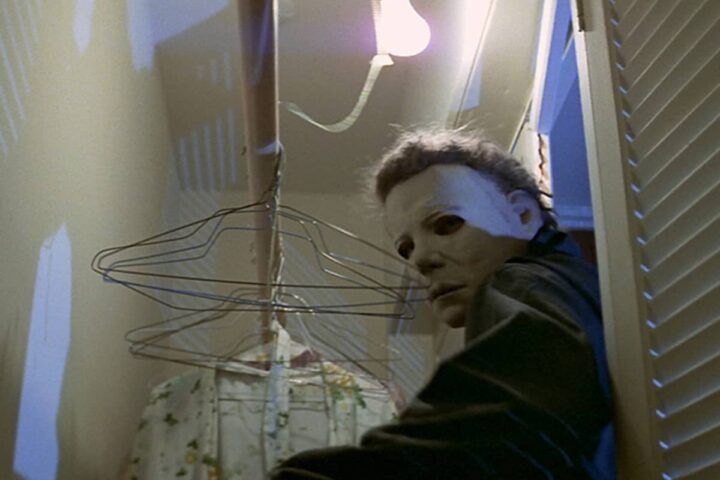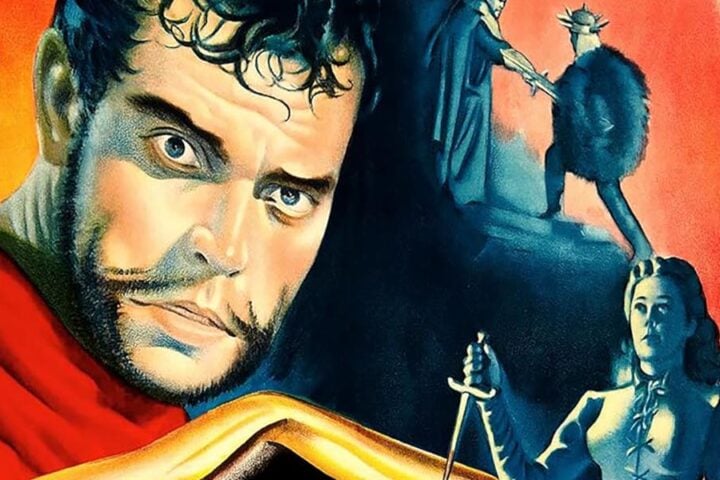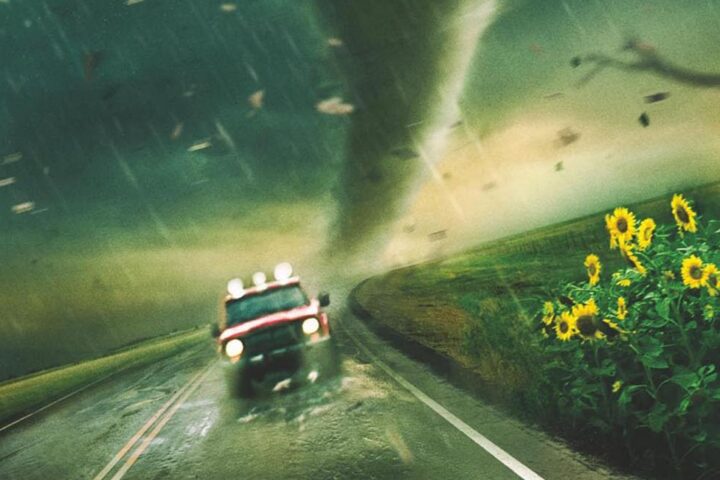If Béla Tarr’s mammoth 1994 opus Sátántangó allegorized the fall of communism on Hungary in its depiction of widespread social anomie and grotesque jockeying for power, 2000’s Werckmeister Harmonies (the first of three features on which he receives a co-director credit with wife Ágnes Hranitzky) might be taken as an extreme literalization of Francis Fukuyama’s notion that the end of the Soviet Union represented the so-called “end of history.”
But where Fukuyama’s words summarized a new world order of Westernized democracy and internationally inter-reliant capitalism, Werckmeister Harmonies runs with the idea to apocalyptic ends. Set in a small Hungarian town, the film presents a haunting monochrome world where the overcast gray sky represents the closest thing to full daylight as one can get. Otherwise, everything seems to exist in an inky void of starless night, dotted only by the faint glow of fading streetlights.
Populating this fading world are townsfolk who’ve begun to regress to the superstitious beliefs of medieval peasants. Angry and fearful for reasons they cannot even identify, people act out in violent mobs swept up in a feeding frenzy, demolishing what little of value remains in their hamlet as an inchoate expression of angst. In the process, they leave themselves wide open to exploitation by anyone with the nerve to assume an air of authority.
In the film’s opening scene, delivery man János (Lars Rudolph, the closest thing to a protagonist) stages an impromptu choreography session in a local pub, ordering around drunken patrons to simulate the solar system like a director moving actors to their marks. Unquestioningly, the others obey his conducting demands, and their dehumanized supplication is compounded by the post-sync sound omitting the clamor of all the movement, instead presenting consciously artificial pockets of soft footfalls.
The herd mentality of people manifests in new extremes when a circus arrives in town. Presided over by an unseen “Prince,” the circus is most conspicuously marked by the dubious attraction of a stuffed whale carcass whose mere presence induces some kind of mass subliminal unease. Like the living whale from Herman Melville’s Moby Dick, the taxidermied leviathan of Werckmeister Harmonies seems to simultaneously embody the terrifying unfathomability of God and proof of the absence of any guiding deity whatsoever. Confrontation with this cosmic nihilism slowly erodes what minimal social bonds still hold the townspeople together.
Eventually, this leads to what may be the film’s most bravura sequence, a mass riot that memorably extends to a rampage through a dilapidated hospital in which filthy equipment and cots are overturned, often with infirm patients resting in them. The destruction derby only ends when the mob stumbles across an old, naked man shivering in a cold shower, the sight of him sending one last shock of half-remembered empathy through a suddenly abashed crowd.
In such moments, the film pulls back from the brink of total despair, even if the filmmakers scarcely exhibit any hope for mankind’s improvement. But compared to, say, the ostensibly similar bleakness exhibited by the work of Michael Haneke, Werckmeister Harmonies is less a hectoring moral fable than an open cry of sadness for how easily people can revert to their most bestial state. A clear through line sets this film at a halfway point between the political commentary of Sátántangó and Tarr and Hranitzky’s more existentially focused The Turin Horse. Hellish things are in motion that cannot be reversed, but at least people might discover some remaining shred of dignity before everything winks out of existence.
Image/Sound
For two decades, those unfortunate to not have seen Werckmeister Harmonies in theaters had to settle for Facets Video’s atrocious DVD or Artificial Eye’s only marginally better Region 2 DVD. Those releases obliterated the inky depths of the high-contrast images under a litany of video artifacts that made the film look like a convenience store’s security camera footage. Criterion’s 4K, sourced from a restoration approved by director Béla Tarr, lifts the veil of pixellated crush and noise from earlier releases to reveal the image in all its startling beauty. Contrast, in both chiaroscuro interiors and street exteriors, is spectacular, as is delineation and clarity. Extreme long shots that once rendered people as fuzzy dots are now crystal clear.
The audio track is also noteworthy. The film’s dialogue has a muffled quality on the Facets and Artificial Eye DVDs, while every line here is clean and clear. The star of the show, though, is Mihály Vig’s haunting score, which is carefully and beautifully balanced in the mix.
Extras
The best extra here, which is included on the Blu-ray disc, is Tarr’s 1979 feature Family Nest, a suffocating depiction of behind-closed-doors marital tension that, outside of the confident use of long takes and overriding interest in how easily we can revert to our most primal states under pressure, feels closer to the work of John Cassavetes than the films that brought Tarr international renown. Also included is a video essay on Werckmeister Harmonies by critic Scott Foundas and a booklet essay by critic and programmer Dennis Lim that places the film in the context of Tarr’s career while also unpacking its resistance to concrete interpretation.
Overall
The Criterion Collection, with this spectacular release of Werckmeister Harmonies, resurrects one of the first great films of the millennium from video neglect.
Since 2001, we've brought you uncompromising, candid takes on the world of film, music, television, video games, theater, and more. Independently owned and operated publications like Slant have been hit hard in recent years, but we’re committed to keeping our content free and accessible—meaning no paywalls or fees.
If you like what we do, please consider subscribing to our Patreon or making a donation.




